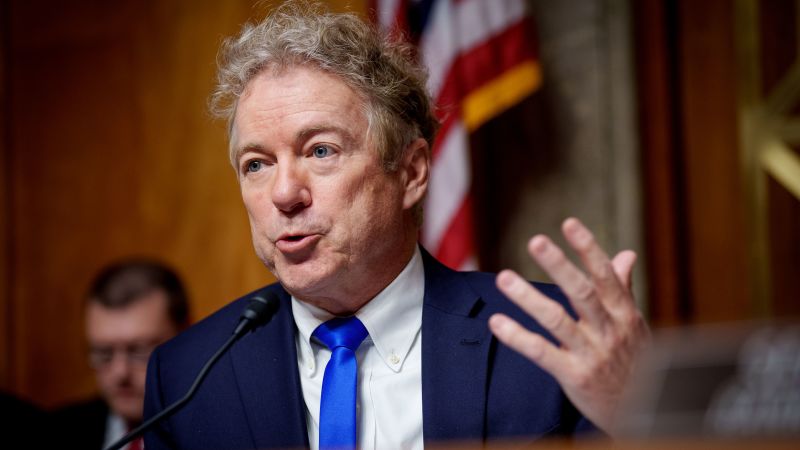In a recent incident that has become a source of controversy, GOP Senator Rand Paul expressed strong criticism towards the White House, accusing it of “immaturity” and “petty vindictiveness.” This statement came after Paul and his family were disinvited from the annual picnic that has traditionally included members of both political parties. Such an event, typically characterized by bipartisan camaraderie, has, in this case, turned into a symbolic confrontation reflecting deeper political divides.
Senator Rand Paul, known for his libertarian views and his approach to fiscal responsibility, has been vocal about his concerns regarding President Donald Trump’s sweeping policy initiatives. Notably, Paul, who is renowned for advocating against increasing national debt, was particularly disheartened by the abrupt withdrawal of the invitation for him and his family—including his young grandson—to the picnic hosted on the White House lawn. The disinvitation coincided with a period in which Trump’s administration had directed substantial criticism towards Paul over the senator’s stance on the President’s policy bill, adding layers to the political spectacle.
“The level of immaturity is beyond words,” Paul articulated, expressing his disillusionment with the current presidential administration. His remarks revealed a stronger sense of personal betrayal, as he mentioned that losing respect for Trump is a significant issue, considering the implications that such a familial event can have on public and political perceptions.
Despite the political undertones, Paul emphasized that his objections stem from genuine concern for America’s financial situation, articulating that “our country is mired in debt and getting worse.” The decision to rescind their invitation was seen as a retaliatory act against Paul’s stance, rather than a genuine political maneuver, which he characterized as exceptionally “petty.” In a public address outside the Capitol, he noted that the situation not only diminished his respect for Trump but also exemplified an unfortunate level of dysfunction in contemporary political relations.
The strategic implications of disinviting a senator like Rand Paul may pose risks for the Trump administration as it navigates legislative challenges. Given that Trump’s agenda in the Senate is precarious, losing the loyalty of even a few Republican senators could obstruct his ability to pass key initiatives. Paul has indicated that he finds the debt increase included in the policy bill unacceptable; however, he has also suggested a willingness to support it should Republican leaders remove the debt ceiling increase from the equation.
In reflecting on the broader implications of this episode, Paul articulated his disappointment that such political gamesmanship has become commonplace, suggesting that it leads to a disheartening atmosphere in American politics, where vital discussions take a back seat to personal vendettas. “It’s just, I think, a really sad day that this is the level of warfare they’ve stooped to,” he lamented. Nevertheless, Paul did signal that this tactic might backfire, indicating that such actions could lead to greater disdain among the public.
Looking ahead, the source of the directive to revoke the invitation remains unclear. Paul speculated whether the decision was made at the presidential level or if it was the result of “petty staffers” seeking retribution for his views. His commentary implied that such staffers ought not to be influencing policy or public discourse at the highest levels of government.
Paul’s comments also took aim at one of the most influential aides in the White House, Stephen Miller, hinting at their role in the administration’s hard-lined rhetoric and policies. By noting that some staff are promoting extreme measures regarding constitutional rights, Paul suggested that their influence reflects dysfunction and a lack of respect for constitutional norms, further complicating the political landscape.
In conclusion, Paul’s disinvitation highlights not only personal grievances but also broader issues within the political fabric of contemporary governance. His experience with this incident serves to underscore how personal relationships in politics have devolved into petty conflicts that risk sidelining crucial discussions affecting the nation. He argued forcefully for the return to a more civilized political environment where differences could lead to debate rather than divisive retaliatory actions.



